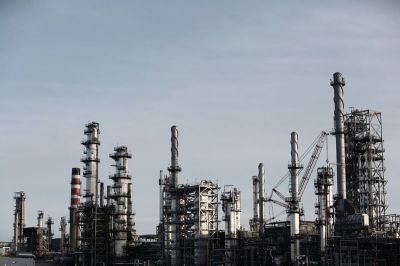The church’s response to climate SOS

For decades, some people have blamed humans for what they consider dangerous, potentially catastrophic climate change. Biblical teaching and sound scientific information should guide how Christians respond. Christ calls His church to help the poor and needy. Catastrophic climate change would hurt them.
But before we jump into action, we must carefully analyze the facts and view the situation through Biblical lenses.
Is climate change real?
There are no “climate deniers” among serious academicians and scientists. Regardless of differences in nationality, ethnicity, and religion, all climate scientists agree that climate change is real. Global average temperature has risen by about 1˚C (1.8˚F) over the last 150 years.
Is climate change mostly manmade?
But scientists differ on how much human activity contributes to warming, the harm it might cause, the extent of natural climatic variability, and how much warming we might see in the future.
The disagreements arise primarily from blatant errors in predictions about our climate system.
Those who think human activity is causing dangerous warming appeal to computer climate models to justify their views. But the models proved wrong for the past 18 years. 95 percent were wrong. They predicted two to three times more warming than actually observed.
In other words, claims about a chaotic future climate rest entirely on false model outputs that remain uncorrected to this day.
It gets even more shocking if we analyze claims climate-change alarmists make regarding the role of human beings in the warming.
The alarmists blame carbon dioxide from burning coal, oil, and natural gas for the supposedly dangerous increase in global temperatures. But during the 16-year period between 2000 and 2016, the global temperatures failed to rise significantly despite a rapid increase in carbon dioxide emissions from human activity.
During this period, there has been a very weak correlation between atmospheric carbon dioxide concentration and global average temperature.
In fact, a comparison of increase in atmospheric CO2 concentration and temperature shows us that a rapid increase in CO2 concentrations does not necessarily translate into a rapid increase in temperature.
Figure: CO2 and Temperature Relationship between 1982 and 2018. Atmospheric CO2 concentration (Red), HadCRUT3 Unadjusted global mean (Green), Satellite Temperature data UAH 6.0 NSSTC Lower Troposphere Global Mean (Blue) Credit: woodfortrees.org
This suggests that our understanding of our climate system is still in its infancy, or that we have been intentionally misled.
How do these facts on climate relate to the development of nations?
For two decades now, using the false computer model forecasts, policy makers at the United Nations and in many national governments have proposed and successfully implemented energy policies—like the Paris agreement—that differ considerably from conventional ones.
These policies impose major hurdles to reducing poverty in Third World countries.
The alarmists demand that countries depend on less reliable, more expensive, highly unpredictable energy sources like wind and solar, whose operational efficiency is at the mercy of nature.
The economically successful countries of the world are the biggest users of fossil fuels. They all know that progress—both in developed and developing countries—is impossible without stable, time-tested, affordable, reliable, abundant energy. The energy sector is the backbone of any country.
The importance of stable energy is prominent in developing countries. There a slight disruption in energy production can translate into a major delay in fighting poverty.
In fact, it can be the difference between life and death for many in the Third World. In India alone, 300 million people live in poverty. Industry propels the economies of these countries, and energy is its bloodline.
It isn’t just industry that suffers from inadequate energy. In China, a temporary ban on coal in some parts put thousands of lives at serious risk last winter. Further, in many African countries energy poverty hampers the fight against poverty.
But climate policymakers seem not to care that aiming for 100 percent renewable energy will disrupt economies and impoverish people.
How should Christians respond?
While the concerns of climate alarmists may appear to be good, the reasons for their energy policies are illegitimate, in fact harmful, to the world’s poor.
Yes, there are greedy politicians and documented abuse of the environment. But that does not justify calling for reduced use of energy sources that pulled the majority of humanity out of poverty.
Some in the global church ignore and neglect controversies surrounding climate-change policies, especially when the policies adversely impact the poor of this world and act as a hurdle to the church’s efforts to help the poor.
It is critical that we as a church not support policies that impede poverty alleviation, especially when they are based on pseudo-scientific claims from falsified models.
Every small progression in the energy sector and the economy helps lift the poor out of poverty.
Real love for our neighbor looks like this: not polluting our environment, not wasting resources, but using them to help people live lives that are safe and sound.
If climate policies stop the poor from earning their rightful path to economic progress, then it is time for us as the church to take a stand against them.
Vijay Jayaraj (M.Sc., Environmental Science, University of East Anglia, England), Contributor for the Cornwall Alliance for the Stewardship of Creation, lives in Chennai, India.



























